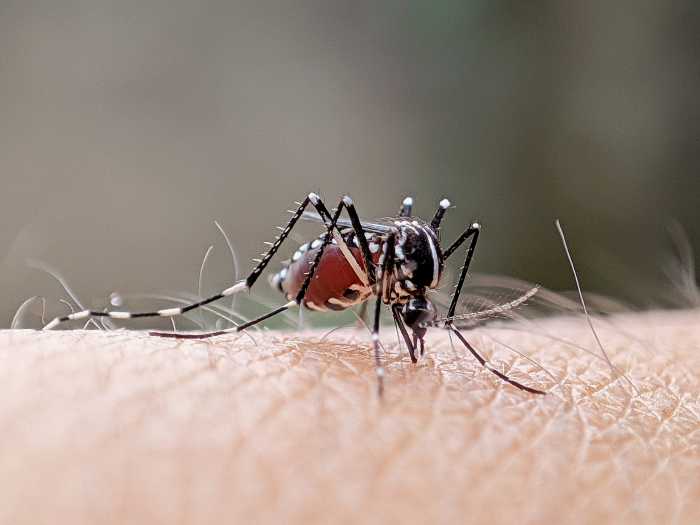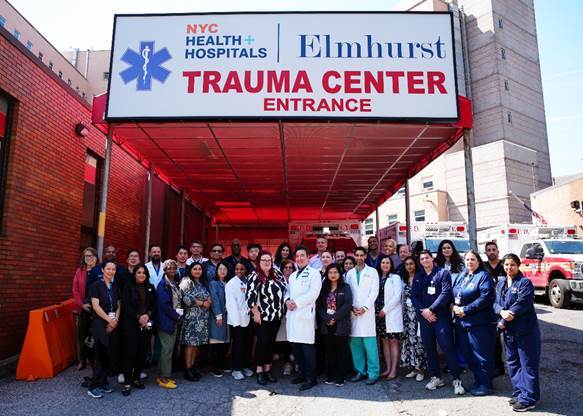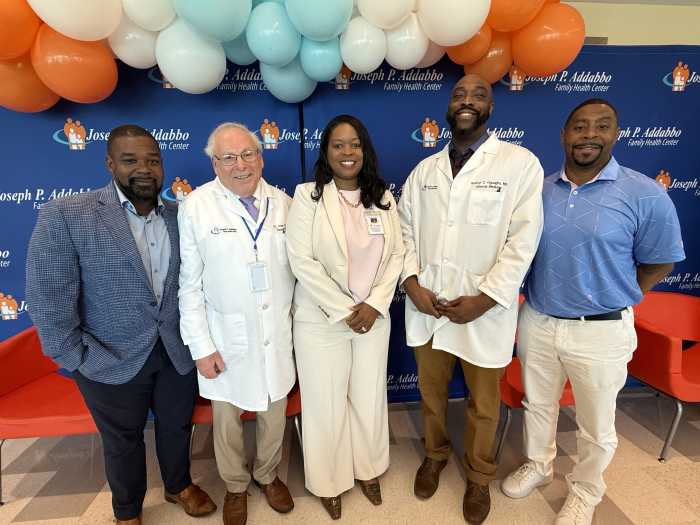BY GABRIELE HOLTERMANN
Elmhurst Hospital, the epicenter of the COVID-19 pandemic, held a strictly socially distanced Go Red for Women Day event as part of American Heart Month on Friday, Feb. 5.
Employees were encouraged to wear red, the signature color of Heart Month representing heart health, and in return received a red face mask from the Women’s Concerns Committee-Joint Labor Management. World Central Kitchen, which also supplies hot meals to frontline workers at 15 public hospitals in New York City, serving 30,000 meals a day, provided a few thousand heart-healthy Santa Fe salads low in sodium and cholesterol with a choice of chicken or tofu to staff in the hospital lobby.

The American Heart Association launched Go Red for Women Day in 2004 to spread awareness of heart disease. According to a newly released 2021 Heart Disease and Stroke Statistics by the association, cardiovascular disease remains the number one killer of women. Heart disease and stroke cause one in three deaths of women each year, according to the American Heart Association – killing more women than all forms of cancer combined. Every 80 seconds, a woman dies from the disease.
Cardiologist Dr. Deborah Reynolds explained that women often present non-classical heart-attack symptoms that can include extreme fatigue, shortness of breath, indigestion, and pain or pressure in the lower chest or upper abdomen. Her department works very closely with emergency and internal medicine to evaluate those symptoms in female patients and run a battery of tests to determine if the symptoms are related to heart disease.
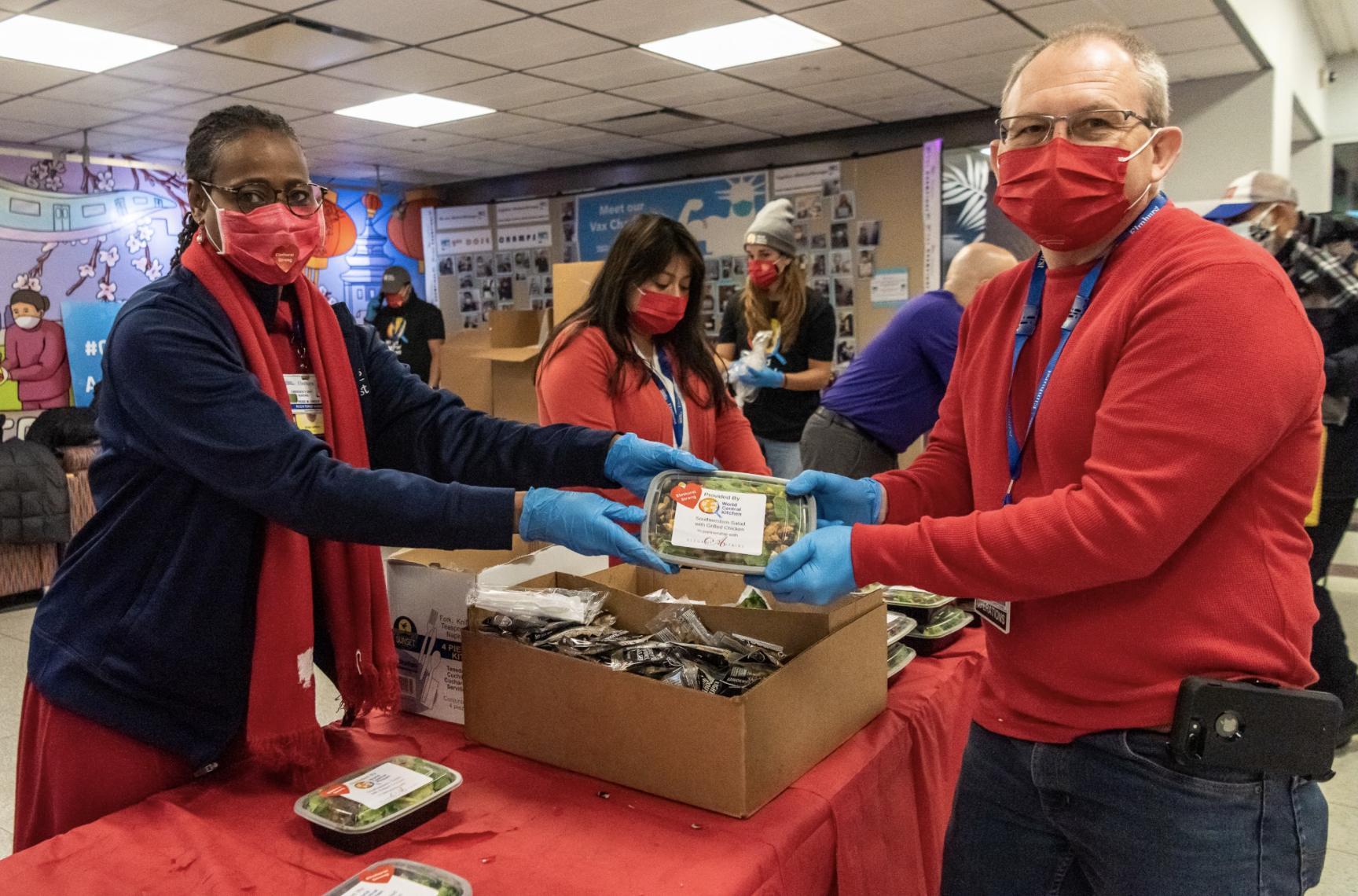
“We take these symptoms very seriously because people, regardless, want to understand why did they change. And we try to objectify that with testing,” Reynolds said.
She reiterated that women should see their doctor even though they might feel nervous because of the COVID-19 pandemic.
“In addition to emergency hospital evaluation, we have a robust cardiology clinic that sees thousands of people. And we can provide expedited testing, both laboratory and imaging,” Reynolds said.
She also noted that they have observed heart disease symptoms in COVID-19 patients that range from traditional heart attacks to heart rhythm issues and trouble walking.
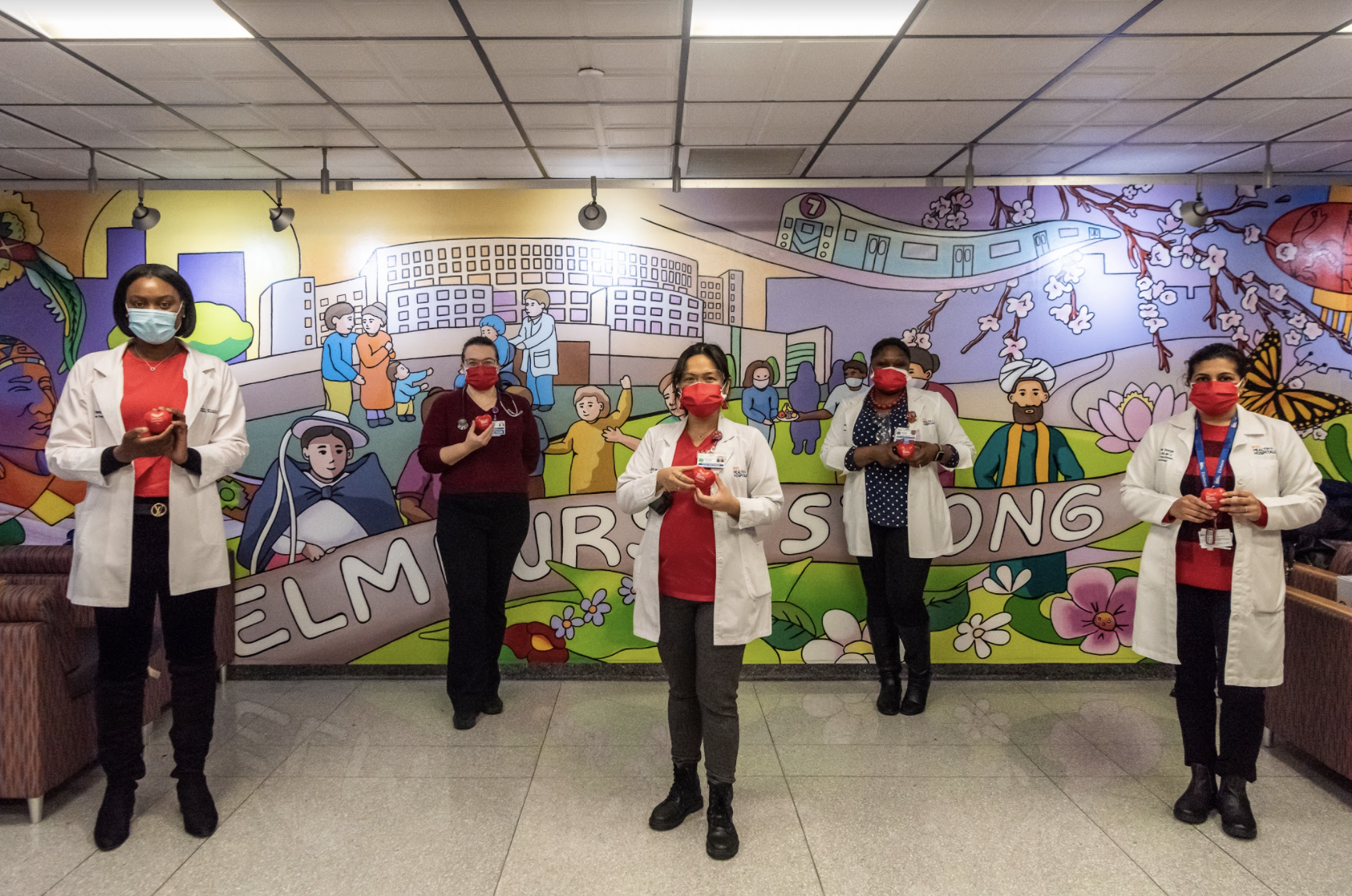
“We are still learning what are the long term effects of COVID,” Reynolds said. “New York City Health and Hospitals Corporation has developed a central area of research that pools the data from the facilities so we can publish research faster this way.”
Because so many patients delayed treatment during the height of the coronavirus pandemic in the spring and summer of 2020 — either because they were afraid or the hospital system was overburdened — her department has seen an increase in patients.
“Since COVID has been stabilizing, we are seeing many people come in having their symptoms evaluated,” she said. “We see a need for cardiology support for not just heart attacks, but heart weakness and irregular heartbeats.”
She encouraged patients to keep up with their yearly check-ups and to seek medical treatment if they display symptoms.
“I think particularly in women we put up with things maybe a little bit longer,” she said. “It’s scary to come to the hospital now. But we want people to understand that we take their safety very seriously, and for that reason, we perform the evaluation over a very short period of time.”



